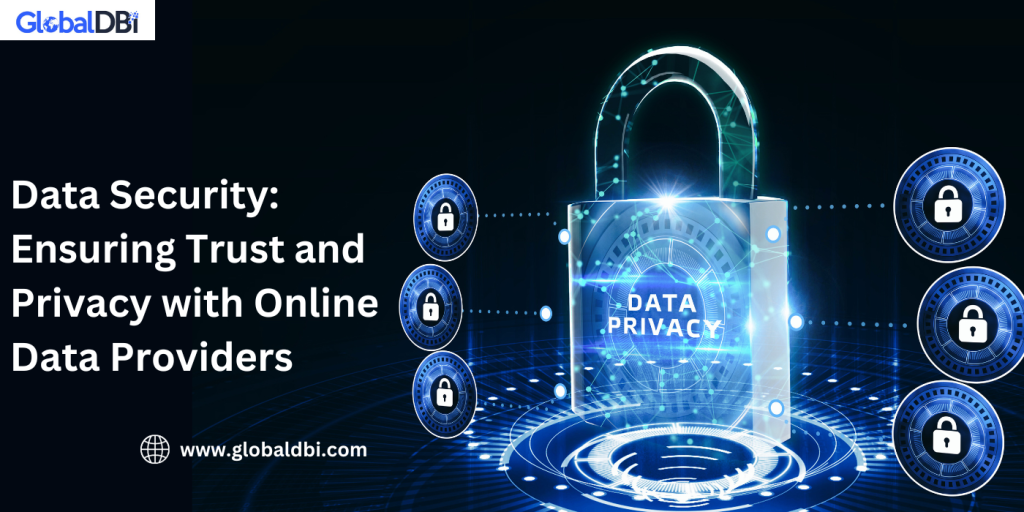Data Security: Ensuring Trust and Privacy with Online Data Providers

Data security is critical in the digital age, especially with the increasing reliance on online data providers. These providers collect, store, and process vast amounts of personal and sensitive information from individuals and organisations. To ensure trust and privacy, several key measures should be implemented:
Encryption:
Utilise robust encryption protocols to protect data in transit and at rest. Encryption ensures that even if unauthorised individuals gain access to the data, they cannot interpret it without the encryption keys.
Secure Authentication:
Implement robust authentication mechanisms, such as multi-factor authentication (MFA), to prevent unauthorised access to user accounts and sensitive data.
Regular Security Audits:
Conduct regular security audits to identify vulnerabilities and address potential risks. This proactive approach helps prevent data breaches and enhances overall security posture.
Data Minimization:
Only collect and retain the minimum b2b database necessary for the service provided. Reducing the data footprint minimises the impact of a breach and enhances user privacy.
Anonymization and Pseudonymization:
Deidentify personal information through anonymization or pseudonymization processes. This practice helps protect individuals’ privacy while allowing data analysis for valuable insights.
Secure Data Transfer:
Ensure data is transmitted securely over networks, using technologies like SSL/TLS to encrypt data during transmission.
Regular Software Updates:
Keep all software, applications, and systems updated with the latest security patches to mitigate known vulnerabilities.
Data Breach Response Plan:
Have a well-defined email database breach response plan. This plan should include steps to contain the breach, notify affected parties, and improve security measures to prevent future incidents.
Employee Training:
Train employees regularly on data security best practices, the importance of safeguarding data, and recognizing and reporting potential security threats.
Compliance with Regulations:
Stay informed and compliant with relevant data protection and privacy regulations, such as the General Data Protection Regulation (GDPR) or the California Consumer Privacy Act (CCPA).
Third-Party Risk Assessment:
If using third-party services, conduct thorough risk assessments to ensure they adhere to robust data security practices.
Transparency and Consent:
Be transparent with users about business to business email data collection, processing practices, and the purpose of data usage. Obtain explicit consent before collecting and using any personal information.
In summary, safeguarding data security and privacy with online data providers is crucial for building and maintaining user trust. By implementing these measures, data providers can demonstrate their commitment to protecting user data and fostering a secure online environment.
